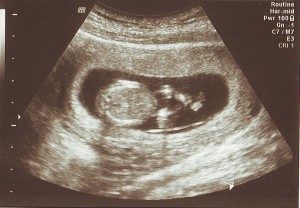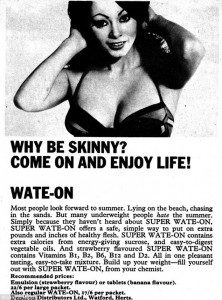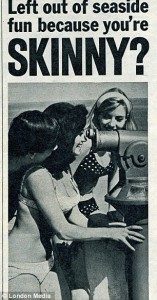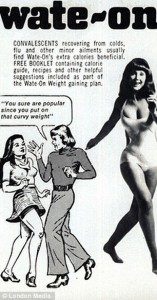The Day I Become a Mother at Whole Foods Market

It was exactly 4 years ago this week that I received a call that changed my life. I was in Whole Foods. Hingham, Massachusetts. Frozen Foods section.
“Hello, Robyn? It’s your social worker, Carla. Are you sitting down?”
I looked around at the walls of freezers and the cold linoleum floor. “Ummm, not exactly.” I bit my lip. My stomach started doing flip flops. I knew this was it. “Let me head outside so I can really hear you.” I left my cart next to the frozen peas and spinach and high tailed it out of there. “OK. I’m outside.”
There was a pause of anticipation. It felt like there should be some kind of drum roll.
“Congratulations, Mommy! You’ve been matched!”
“Oh my God.” I put my hand over my heart. My breath was stuck inside my lungs waiting to hear who had chosen us to parent her child. But in actuality, I knew.
You see, I had been holding on to a single email with this potential birth mother’s name and information on it for a week since it came in to my inbox. There was something about it that called to me—a deep knowing that she was growing our baby inside of her. In fact, it was the only “baby” email I printed out and took with me to Las Vegas where I spoke at a conference just a few days before. The email was still in the my purse as I stood there outside of Whole Foods market clutching my phone to my ear, closing my eyes and hoping that I wasn’t dreaming.
For four years I had waited for this moment. We were pregnant. Well, not me, exactly. But we were having a baby. And I had learned the hard way that this was the most important thing. We were making a family.
After getting all the information on next steps, I hung up the phone and exhaled the countless breaths that had been stuck inside my body for too long. Turning my face up to the sun I thanked God audibly. My eyes were wet with grateful tears—an incredible change from the gut-wrenching cries I had thrown up after each miscarriage, misstep, and misleading test.
“What am I going to do now?” I wondered. Can I really go food shopping after this news? Gathering up frozen food items and fresh produce just didn’t seem worthy of this news. And I wasn’t going to tell Jason over the phone that he was going to be a Daddy. No way. This moment was too important!
But as you might imagine, I was bursting. So I went back inside Whole Foods and found my cart, headed over to the deli counter and did what any woman would have done in my situation. I told the deli guy! Who called over the other people behind the counter, who called over some other people…and there were shouts of congratulations and some teary smiles. It was fabulous. It felt really, really good.
As I put my grocery bags in my car I smirked at the thought that I had gone into the store a wife and had come out a mother. Not too many people can say that, huh? One of the best moments of my life started in the frozen foods section, moved outside their front door and made it’s first announcement at the Deli Counter of Whole Foods market in Hingham, Massachusetts. A shopping trip I will never forget.
What’s your story? Tell us here or on Facebook!


 “Enjoy life!” “Put on 5 pounds of flesh!” “Left out because you’re too skinny?” Vintage ads paint the picture that full-figured women were the beauty standard of their era.
“Enjoy life!” “Put on 5 pounds of flesh!” “Left out because you’re too skinny?” Vintage ads paint the picture that full-figured women were the beauty standard of their era. These days it seems that people say the word “fat” like they are spitting it out on a plate. This can be really confusing and upsetting for young girls who are going through puberty—a time when it’s very normal and natural to gain an average of 25 pounds! As a young girl or women is gaining weight, many look at it as “getting fat.” It’s common that people bemoan ‘I feel fat” or call themselves ugly names like “whale,,” “pig,” or “heifer.”
These days it seems that people say the word “fat” like they are spitting it out on a plate. This can be really confusing and upsetting for young girls who are going through puberty—a time when it’s very normal and natural to gain an average of 25 pounds! As a young girl or women is gaining weight, many look at it as “getting fat.” It’s common that people bemoan ‘I feel fat” or call themselves ugly names like “whale,,” “pig,” or “heifer.” What would it have been like to live at a time when people thought it was more beautiful to be buxom that thin? Or is the pressure the same whether it’s to be thin or to gain weight in order to fit in?
What would it have been like to live at a time when people thought it was more beautiful to be buxom that thin? Or is the pressure the same whether it’s to be thin or to gain weight in order to fit in?